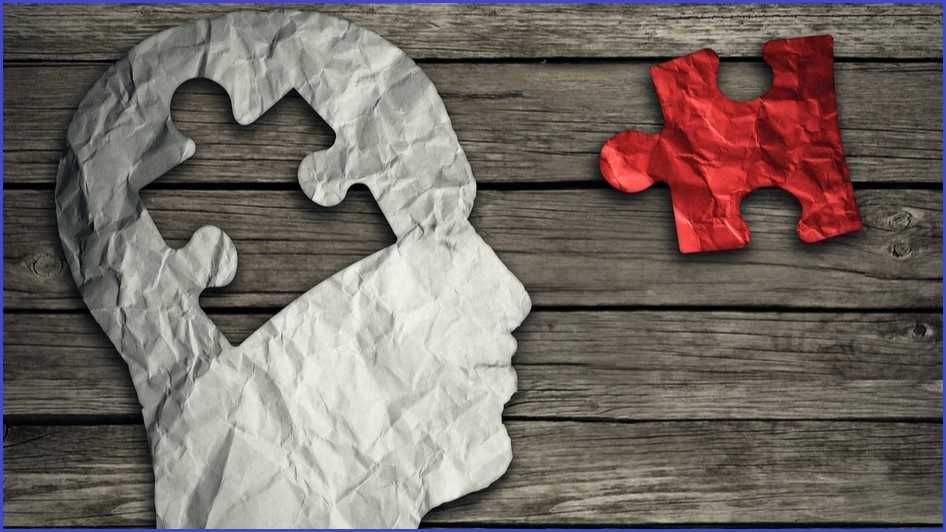Across the past five years, Professor David Raffo noticed significant changes in the way his students interacted and engaged.
Prof Raffo, who lectures in Business Engineering and Computer Science at Portland State University in the US, witnessed students having more trouble interacting and engaging with others, as well as taking constructive feedback than they did pre-pandemic.
Another concern was the gradual decline in the quality of their written assessments – but surprisingly, this started to improve over the pandemic.
Later, he discovered when interacting with students that the new AI tools they used to correct their writing were making the difference.
“I realised it was the tools that improved their writing and not their writing skills.
“We have a real problem on our hands when the digital revolution impacts social discourse, engagement and written communication,” he said.
The bottom line according to Prof Raffo is that when the tools do the work, people don’t learn the skills.
“I want students to do well, it’s what we’re here to do as teachers.
“It’s imperative for our society to be better educated and capable of critical analysis, and to be able to diagnose misinformation that comes their way rather than relying on AI.”
External rewards, faster output impacting critical learning
With AI, the temptation is there for external rewards and getting things done faster.
“At its best, AI enables us to get work done quickly and efficiently by rapidly gathering and organising information across written communications, developing designs, and providing suggestions on how to address difficult issues and problems,” Prof Raffo says.
The major downside is the loss of critical creativity.
AI tools have become so easy, people no longer wish to take the harder road and learn the fundamentals and develop skills.
“When we let AI do the work, we pass on the opportunity to exercise important parts of our brains.
“Our mental and cognitive capabilities are like muscles, so they need to be regularly used to remain strong and vibrant.
“Creativity is one of those muscles that needs to be exercised,” said Prof Raffo.
Over time, some pathways in the brain can become less active and can experience reduced capabilities.
“For younger individuals, if they do not exercise the brain by performing complex tasks, important aspects and connections within the brain may not be developed at all,” Prof Raffo added.
AI and associated digital technologies can be highly alluring, absorbing and addictive.
“People are consumed by their devices.
“Truly, it would take an extraordinary person to have the discipline necessary to stay mentally strong and vibrant when engaging with the technologies that are available.”
Can this be turned around?
Prof Raffo says there are no easy answers, as the issues are complex and generative AI is becoming more entrenched in our daily lives.
“Until there are regulations or guidelines for use of AI, it will fall to individuals and families to determine how they utilise AI in their personal and professional lives,” he adds.
Leading Australian AI expert and author Professor Toby Walsh says there is evidence that we’re getting dumber and the proof is already there — although whether technology is driving this or not, is still unclear.
“For many years, people were getting smarter.
“This was categorised by a study called the Flynn Effect after James Flynn, a New Zealand academic who popularised the idea in 1984.
“Now, studies show this effect is reversing,” Prof Walsh said.
He is referring to a study conducted by Northwestern University in the US, which revealed a decline in three key intelligence testing categories — and is now being called the Reverse Flynn Effect.
“Leading up to the 1990s, IQ scores were consistently going up, but in recent years, that trend seems to have flipped.
“The reasons for both the increase and the decline are still very much up for debate,” adds Prof Walsh.
Americans’ IQ scores are trending downward
Verbal reasoning and problem-solving skills have dropped according to a June 2023 paper by US researchers Elizabeth Dworak, William Revelle and David Condon.
The researchers recorded responses in 2006 and 2018, in order to examine if and how cognitive ability scores were changing over time within the country.
The online, survey-style personality test called the Synthetic Aperture Personality Assessment Project (SPAP) analysed nearly 400,000 Americans.
According to their study, the researchers noted that test scores in three out of four “cognitive domains” were going down.
The data showed drops in logic and vocabulary (known as verbal reasoning), visual problem solving and analogies (known as matrix reasoning), and computational and mathematical abilities (known as letter and number series).
Differences in ability scores were present regardless of age, education, or gender.
The steepest slopes occurred for ages 18–22 years and lower levels of education.
Lead researcher Elizabeth Dworak believes it might have something to do with a shift in perceived values in society.
She offers up the potential explanation that an increase in focus on STEM education may have allowed other areas, like abstract reasoning, to fall by the wayside.
A few other hypotheses have been put forth to try and explain the Reverse Flynn Effect, such as falling nutritional standards, the worsening of school systems, social media, increased air pollution, or the idea that people are less interested in portions of the SPAP survey.
The bottom line is more work needs to be done to understand the decline.
We’ve been here before
Honorary Professor of English at the University of Sydney, Paul Giles, reminds us that the ‘dumbing down’ has been a longstanding complaint amongst educators.
“Back in the 1960s, when the slide rule came out, people thought kids wouldn’t be able to do their own multiplication.
“Even when Wikipedia launched, everyone thought students would be copying information from there. AI is the latest version of this,” said Prof Giles.
He does concede the pandemic impacted student’s learnings and created anxieties.
“For many students, time at university is the daily contacts and socialising.
“A lot of critical thinking happens when they socialise and discuss their seminars in an informal way.
“The pandemic took a lot of this away. They were locked in isolation, interacting online for long periods — this produced anxieties.”
Thinking outside the bot
Prof Giles adds there a number of ways to engage students so they can think critically and not rely on AI.
He recommends having more assessments in the classroom and making them shorter.
“Ask students to analyse these in great detail among their peers. Bringing people together opens up discussion and critical thinking,” he says.
In terms of cutting back the use of AI systems such as ChatGPT, there are ways to guard against this.
“Most universities and colleges are using software like Turnitin to catch out AI use.
“The more specific and more targeted the assignments to a particular question, the less likely some AI robot is going to come up with the answers.”
Could AI developers hold the key to creativity?
Ellen O’Brien, a researcher at the ANU School of Cybernetics, is not convinced that AI is making people dumb or lazy, although it can change creative processes.
“Creativity is a set of processes that are shaped by context and tools. AI is part of both.
“The capabilities of some AI, especially generative AI, may automate parts of existing creative processes, and this will change which parts of the creative process we put our attention when creating,” she says.
She adds that while this might alter creative output, it won’t change our fundamental capacity for creativity.
O’Brien believes the way this can be turned around is by engaging with AI developers and programmers who understand the ways that AI is shaped.
Currently, there are relatively few examples of education and training that try to bridge the skills to both ask critical questions about the technologies we build and deploy, whilst also teaching the skills to do the building.
“It’s not that developers are there setting out to highjack creativity, but they also need to be asking critical questions on its use, including impact to creativity,” she says.
“Humans have a natural capability to be creative, so it’s useful to exam how we can engage with technology as a tool for creativity.”










